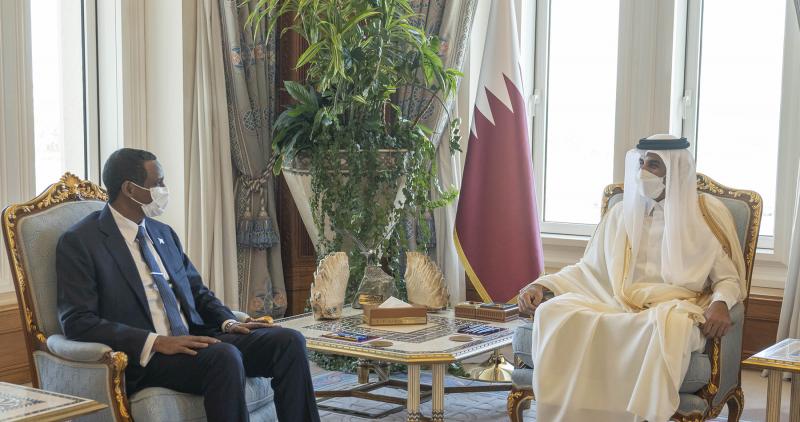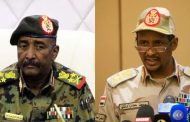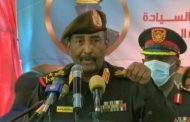Arab Weekly
KHARTOUM – Qatar has tried to use visit of Lieutenant General Mohamed Hamdan Dagalo (Hemedti), vice-president of the Sudanese Sovereignty Council, to Doha beginning on Saturday, to seek bilateral prospects beyond the official framework announced by Khartoum.
Doha invested in Gulf reconciliation during Hemedti’s talks with senior Qatari officials, led by Qatari Emir Sheikh Tamim bin Hamad al-Thani. It also sent messages to the Sudanese indicating that the climate is propitious for their return to Doha without any justifications.
Doha worked to use the visit of the high-level Sudanese delegation as a key starting point to turn the dark chapter of relations between the two countries, which followed the fall of the regime of former President Omar al-Bashir. Bilateral ties had cooled after that until signs of warming began to appear with Gulf reconciliation.
Qatar’s apparent welcome of Hemedti was well received by a large segment of the Sudanese, as the talks indicated the return of Qatar to Sudan and vice versa, as well as possible gains for Sudan at a time when it is facing severe economic crises.
Hemedti’s leadership of the Sudanese delegation carried a message of rehabilitation for Doha, as the vice-president of the sovereignty council had been associated with the axis opposing Qatar before Gulf reconciliation was reached at the Al-Ula summit in Saudi Arabia last month.
Hemedti supported maintaining the role of the Rapid Support Forces, which he heads, within the Arab coalition forces in Yemen, as Doha later turned against these forces.
Sudanese sources told The Arab Weekly that Khartoum tried to invest politically in Hemedti’s visit to Doha as well by sending a message to countries that want to have a place in Sudan not to hesitate to support Khartoum. The message indicated that the transitional authority is open to everyone who helps it achieve its interests, and that there is no permanent hostility or objection to anyone.
Qatar is satisfied with Hemedti’s political ambitions. It succeeded in transforming the stated goal of his visit from explaining Sudan’s position on the issues of the Renaissance Dam and the border crisis with Ethiopia to positioning the visiting senior official as a key member of the military establishment, in a way that suggests that influence within the Sudanese military is not wielded only by the head of the Sovereignty Council, Lieutenant General Abdel Fattah al-Burhan, who was previously portrayed as being the only one to hold the reins of external relations in the Sudanese power structure.
The same sources indicated that Doha is aware of Hemedti’s inflated ego, and his desire to present himself as a possible candidate for president at the end of the transitional period. His attempt to position himself in this way is based on the fact that he is a senior-level leader who is at the top of the public scene, and he combines military and civilian qualities.
Hemedti holds in his hands many files that help increase his influence, in light of the presence of regional and international powers that watch developments in Sudan with concern.
These powers, which fear a street upheaval getting out of control, anticipate the army’s direct intervention, and may find in Hemedti a promising political face.
Qatar’s rapprochement with the transitional authority raises many questions about the role that Doha has played and continues to play in Sudan, with its strong ties with the remnants of the former regime and factions within the Islamist movement. But this consideration may put Khartoum in a quandary vis a vis countries that question Doha’s intentions and its relations with extremist forces in the region.
Sudanese political analyst Abdul Wahid Ibrahim said, “Qatar benefits from Hemedti’s visit towards its involvement in the process of the Brotherhood’s reorganisation as the Islamists could try to take advantage of the constitutional situation or organise themselves for the purpose of reaching the top of political power through the elections that will follow the transitional period.”
“Doha is playing on the lack of a political and intellectual backer for the military council in Sudan as it attempts to contain the representatives of the army in the Sovereignty Council and to keep them away from the Arab axis that is hostile to the Brotherhood and terrorist organisations,” Ibrahim told the Arab Weekly.
Qatar realises that some army commanders are an extension of Bashir’s regime. It is trying to exploit this situation by recovering some of the files it previously held, especially the Darfur file, which it used to support the Islamist movement in the province and play a mediating role in bringing peace between Khartoum and armed movements there.
The transitional government’s military wing seeks to gain more political space in the Arab Gulf, as well as maximise its benefits from the support provided to Sudan. This, it hopes, will contribute to alleviating the economic weight of grants and loans in a manner that would revive the country’s treasury in the coming period so as to help the Sovereignty Council find light at the end of the current dark tunnel and control the growing anger of the street.
The Sudanese investment ministry estimates Qatari investment in the country to be around $3.8 billion, with Doha ranking fifth among investor countries. This ranking could rise with Sudan’s removal from the US list of terror sponsors.
Observers say that forging new relations with Doha comes at a time when the country is preoccupied with severe socioeconomic crises and when the management of the political crises could be exploited by Bashir’s remnants’ efforts to reposition themselves.
Qatar wants to shed the image that many Sudanese have of it as being biased towards the former regime’s remnants.
It also strives to benefit from the current situation, hoping to restore its influence and revive the role of the Qatar Charity organisation in displacement camps. Suspicions have hovered over the nature of the support it provides to allied elements for the purpose of boosting the Islamist movement’s stature.
On Monday, Qatar Charity announced it would continue providing humanitarian aid to Ethiopian refugees fleeing to Sudan from fighting in the Tigray region, in a clear indication of direct dividends reaped by Doha from Hemedti’s visit, as the Qatari organisation has been viewed as suspicious for playing a role that goes beyond the human dimension.








